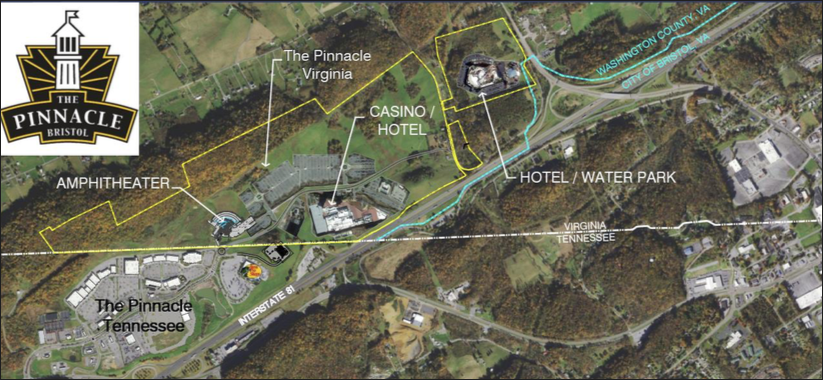Indian ancestral lands are sacred — sacred, I tell you!
Until they’re not. As is apparently the case in Washington County, where the Eastern Band of Cherokee Indians, the vast majority of whom live in North Carolina, have proposed to build a casino.
The eastern Cherokee, who operate the Harrah’s Cherokee Resort Hotel and Casino on tribal land in western North Carolina, have called the proposed Washington County side part of its “beloved ancestral home,” according to the Richmond Times-Dispatch. Sure. Just the place for a casino, resort hotel, 15,000-seat outdoor concert venue, recreational facilities.
As RTD writer Michael Martz notes, the proposal complicates a policy challenge facing the General Assembly as it considers the legalization of casino gambling and other gaming ventures in the state. Last year, the state enacted a law allowing the Pamunkey Indian Tribe to build a casino in either Norfolk or Richmond, and permitted the construction of commercial casinos in Danville, Portsmouth, and Bristol on the grounds that they experienced declining population, high poverty and high unemployment rates. Needless to say, developers of a proposed casino in nearby Bristol are vehemently opposed to a Cherokee-related casino very nearby.
I haven’t delved into this deeply, but my gut reaction is that this Indian casino thing is a racket.
For the most part, the eastern Cherokee are located in North Carolina. They do not live on a reservation, but in the 1800s, tribal members purchased 57,000 acres of property in the western tip of North Carolina known as the Qualla Boundary, which now is held in trust by the federal government. Apparently, the Eastern Band of Cherokee Indians enjoys the status as a sovereign nation located within the borders of the United States.
I can’t find any reference on the Internet (not that I searched exhaustively) to explain what grounds the Cherokee have for identifying part of Washington County as part of their “ancestral home.” I’m not even clear if the “ancestral home” has any legal significance.
What we do know is that the property in question is adjacent to The Pinnacle, a 240-acre shopping center and commercial development on the Tennessee of the state line (as seen above). We also know that the Pinnacle is owned by a certain Steve Johnson. Apparently, the Eastern Band of Cherokee have enlisted Johnson — or, perhaps, Johnson enlisted the Cherokee — to develop the Virginia property.
Media accounts leave a lot of questions hanging. Who would finance this project — the Cherokee tribe, Johnson, some combination of the two, or has some third party entered the picture? If the Eastern Band of Cherokee constitute a “sovereign nation” do their sovereign rights usurp the authority of the Commonwealth of Virginia to decide who gets to build a casino and where? Most importantly, will the Eastern Band of Cherokee have skin in the game, or is their contribution to the enterprise a protected federal status that allows them to circumvent the rules that apply to everyone else while someone else ponies up the money and takes the risk?


Leave a Reply
You must be logged in to post a comment.